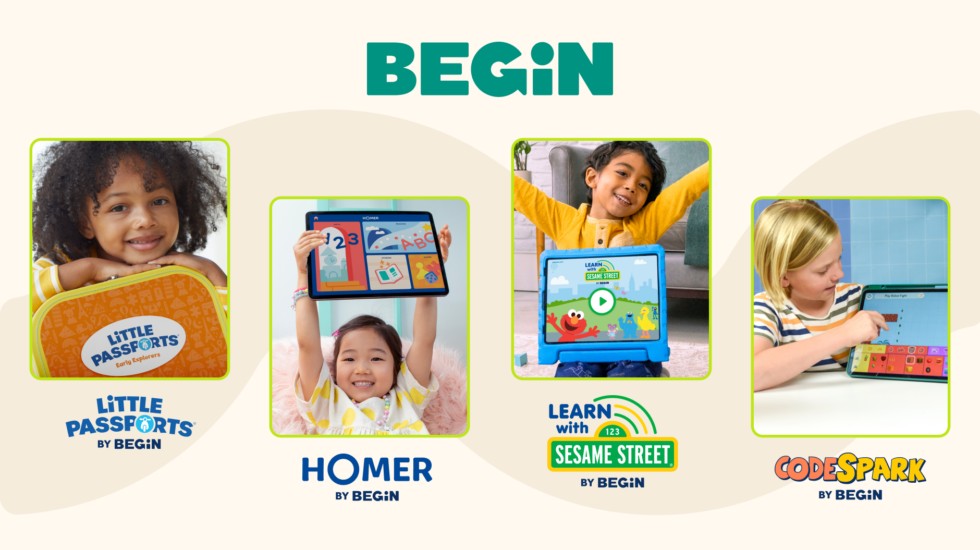When Can Kids Learn To Read? This is a question that LEARNS.EDU.VN addresses extensively, recognizing that the journey to literacy is a gradual process, not a single event. Kids begin developing essential pre-reading skills long before they can fluently read, so we provide the resources you need for reading readiness. Making literacy a fun and positive family experience is key. With insights into early reading development, foundational literacy skills, and reading milestones, LEARNS.EDU.VN aims to be your go-to resource for guiding your child’s reading journey.
1. Understanding the Reading Code
Reading is a crucial skill, identified by the Begin Approach as a core element for thriving in both academic and life environments. Children with well-developed core skills often show greater success later in their academic careers.
Typically, children naturally acquire spoken language (whether verbal or signed) through exposure, without explicit teaching. Enhanced communication with your child significantly enriches their receptive and expressive language skills, which, in turn, positively affects their ability to read.
Reading, unlike speaking, is not inherently acquired. Children need instruction to decode written language. They must learn that words are composed of individual sounds (phonemes), each associated with a letter. Mastering this “code” involves identifying these sounds, matching them to letters, and blending them to read words. This process takes time and is supported by pre-reading skills developed throughout their literacy journey.
1.1 Essential Pre-Reading Skills
Several pre-reading skills are fundamental to a child’s literacy development.
1.1.1 Phonological Awareness
Phonological awareness is the broad understanding of the sounds in language and how they interconnect. According to research from the National Reading Panel, phonological awareness skills include recognizing and manipulating sounds within words, identifying rhymes, and combining syllables and sounds to form complete words. Developing phonological awareness is a key predictor of reading success.
1.1.2 Alphabet Knowledge
Alphabet knowledge involves the ability to recognize and name letters. The more proficient a child is at naming letters quickly, the easier they can map speech to print. Experts at Reading Rockets emphasize the importance of explicitly teaching letter names and sounds to enhance early literacy skills.
1.1.3 Print Awareness
Print awareness encompasses familiarity with various forms of text and understanding print structure, such as knowing how to hold a book correctly and recognizing that print conveys meaning. Studies show that children with strong print awareness skills are better prepared to understand and engage with written material.
1.1.4 Phonemic Awareness
Phonemic awareness is a subset of phonological awareness focusing on identifying and manipulating individual sounds (phonemes) in words. The National Center for Improving Literacy highlights that phonemic awareness is a strong predictor of later reading achievement and should be a key focus in early literacy instruction.
Mastering these skills is essential for reading and writing development. Patience and practice will lead children to enjoy reading independently, each at their own pace.
2. Decoding the Timeline: When Do Kids Learn to Read?
Each child’s journey to reading is unique. Variations in reading readiness are normal, and what matters is providing support and encouragement tailored to each child’s needs.
Exposure to reading materials plays a vital role in a child’s reading development. Children who are frequently read to, who observe their parents enjoying books, and who have access to books in their daily lives often show a greater enthusiasm for learning to read. These children also tend to develop essential pre-literacy skills, such as print awareness.
Independent reading significantly impacts a child’s reading development. Focus on creating a positive reading environment that encourages exploration and discovery. Instead of focusing on strict timelines, it’s more beneficial to understand the general reading milestones children typically achieve at different ages.
2.1 Reading Benchmarks by Age
Understanding typical reading milestones helps parents and educators support children at each stage of development.
2.1.1 Babies (Under 1 Year Old)
Babies interact with books through exploration, often by touching and mouthing board books. Engaging storytelling and colorful illustrations capture their attention and lay the foundation for a love of reading. According to the American Academy of Pediatrics, reading aloud to babies from an early age can improve their cognitive development and language skills.
Pay attention to the noises babies make while reading, as cooing and other vocalizations often indicate engagement and enjoyment.
2.1.2 Toddlers (1 to 2 Years Old)
As toddlers grow, babbling turns into more purposeful speech. Around 18 months, their vocabulary starts to expand rapidly. Parents can capitalize on this by sharing books with pictures of familiar objects, asking “What’s that?” to encourage vocabulary development.
Physical involvement, such as holding their hand while turning pages, helps develop motor skills. Running a finger along the text introduces print awareness and demonstrates the left-to-right reading direction.
2.1.3 Preschool-Aged (3 to 4 Years Old)
The groundwork laid in earlier years starts to show as children develop more fundamental understandings about books and reading. Three-year-olds begin to identify parts of a book, such as the spine, title, cover, and author.
They can also retell simple stories. They begin to associate sounds with letters and engage in listening games to enhance phonics skills. Singing lullabies and nursery rhymes, along with clapping, boosts phonics confidence. By the end of the preschool years, children often learn to sing the alphabet and recognize at least half of the letters.
2.1.4 Kindergarteners (5 to 6 Years Old)
Formal instruction in sounding out words begins at this stage. Children benefit from learning to identify individual phonemes, which is essential for decoding words. Learning sight words is also crucial, as these words don’t always follow typical phonetic patterns.
Incorporating sight word games into their routine is beneficial. Encourage children to summarize the story to build confidence and assess comprehension. Asking simple questions about the plot helps engage their minds and ensures they understand the material.
2.1.5 Young Elementary (6 to 7 Years Old)
At this age, children learn more advanced phonics, including silent “e,” vowel teams, and vowels controlled by “R.” Weekly vocabulary lists and exposure to common spelling rules are introduced. Rereading favorite books builds fluency, allowing them to engage more deeply with texts and investigate unfamiliar words.
Help children make connections between what they read and their own lives to foster a love of reading.
2.1.6 Older Elementary (8 to 10 Years Old)
Children transition from learning to read to reading to learn, choosing to read independently for pleasure and to explore their interests. They analyze texts, answer questions, and seek real-world examples. Even as independent readers, reading aloud together remains beneficial, providing opportunities to share more challenging books.
Discussing books together, similar to a book club, can be a fun way to connect and spend quality time.
3. Addressing Common Concerns: FAQs About Children’s Reading Development
3.1 Why Does My Child Have Trouble Reading?
If a child isn’t reading at the same pace as their peers, it doesn’t necessarily indicate a problem. They may need additional time and support.
Reading development involves multiple skills, and some children may find certain aspects more challenging. This could stem from the type of reading instruction used or difficulties understanding language mechanics, such as matching sounds to letters.
Providing tailored support is essential. The HOMER app, developed by experts, focuses on key developmental areas, including early childhood reading. Its personalized pathway builds essential skills, from letters and sounds to sight words, reading, and spelling. Research indicates that just 15 minutes a day with HOMER can improve early reading scores significantly.
3.2 Why Is My Youngest Child Not Reading When My Oldest Did?
Comparing children’s literacy journeys is counterproductive. Each child is unique, and developmental milestones will be reached at different times. Even if an older sibling began reading early, it doesn’t guarantee the same for younger siblings.
Children generally begin reading around six or seven years of age. The U.S. Department of Education supports this timeline, emphasizing that variations are normal.
3.3 Who Can I Reach Out to If I Think Something’s Wrong?
While variations in reading development are common, medical or learning differences can sometimes slow progress. If concerns arise, consult with the child’s teacher or a school learning specialist to determine whether the issue is developmental or indicates underlying problems.
A reading specialist outside the school can also assess the child and help identify any additional needs. Experts, such as early learning specialists at KidPass Tutors, can match the child with a tutor who will create a customized learning plan.
4. Unlock Your Child’s Reading Potential with LEARNS.EDU.VN
Is your child showing interest in reading? Understanding when kids learn to read is just the beginning. LEARNS.EDU.VN offers a wealth of resources to support your child’s literacy journey, from pre-reading skills to advanced comprehension. We provide expert guidance, practical tips, and engaging activities to make learning an enjoyable experience.
4.1 Comprehensive Resources
Discover detailed articles on foundational literacy skills, including phonological awareness, alphabet knowledge, and print concepts. Our content is designed to help you understand the building blocks of reading and how to support your child every step of the way.
4.2 Expert Tips and Advice
Benefit from insights from experienced educators and reading specialists. We share proven strategies for making reading fun, addressing common challenges, and fostering a lifelong love of learning. Whether you’re looking for tips on choosing the right books or creating a supportive reading environment, LEARNS.EDU.VN has you covered.
4.3 Engaging Activities
Find a variety of activities and games that make learning to read exciting and effective. From interactive phonics games to creative writing prompts, our resources are designed to keep your child motivated and engaged. We offer a mix of online and offline activities to suit different learning styles and preferences.
4.4 Personalized Support
Every child learns at their own pace. At LEARNS.EDU.VN, we understand that personalized support is key to success. Our resources are designed to be adaptable to your child’s unique needs and abilities.
4.5 Stay Informed
Keep up-to-date with the latest research and trends in literacy education. We regularly update our content with new insights and strategies to help you provide the best possible support for your child’s reading development.
4.5.1 Expert Insights
Access articles written by educators, reading specialists, and child development experts. Gain a deeper understanding of the science behind reading and how to apply effective strategies in your home.
4.5.2 Step-by-Step Guides
Follow clear, easy-to-understand guides that break down complex topics into manageable steps. Learn how to teach phonics, build vocabulary, and improve reading comprehension with our practical resources.
4.5.3 Community Support
Connect with other parents and educators in our online community. Share your experiences, ask questions, and find support as you navigate your child’s literacy journey.
By exploring the comprehensive resources at LEARNS.EDU.VN, you can equip yourself with the knowledge and tools necessary to support your child’s reading development. From understanding the stages of reading acquisition to implementing effective teaching strategies, we provide the guidance you need to make a positive impact.
With LEARNS.EDU.VN, you’ll find the information and support you need to help your child succeed.
5. Empowering Your Child’s Reading Journey: LEARNS.EDU.VN Resources
Regardless of when your child learns to read, remember that love and support are the most crucial elements. If concerns arise, don’t hesitate to contact a teacher or professional.
LEARNS.EDU.VN is here to help.
Our age- and stage-matched learning resources provide activities designed to teach essential skills, including reading. Explore our website to discover the perfect resources for your family.
Want to learn more? Here’s a brief overview:
| Resource Category | Description | Benefits |
|---|---|---|
| Foundational Skills Articles | Detailed guides on phonological awareness, alphabet knowledge, and print concepts. | Provides a strong base for early reading development. |
| Expert Tips and Advice | Insights from educators and reading specialists on making reading fun and effective. | Offers practical strategies for addressing challenges and fostering a love of reading. |
| Engaging Activities and Games | Interactive phonics games and creative writing prompts designed to keep children motivated. | Makes learning enjoyable and reinforces key concepts. |
| Personalized Learning Paths | Resources tailored to each child’s unique needs and abilities, ensuring targeted support. | Adapts to individual learning styles and paces. |
| Latest Research and Trends | Regularly updated content with new insights and strategies in literacy education. | Keeps you informed about the most effective methods in reading instruction. |
| Step-by-Step Guides | Clear, easy-to-understand guides that break down complex topics into manageable steps. | Simplifies the learning process and provides actionable steps for parents. |
| Community Support and Resources | Connect with other parents and educators in our online community, sharing experiences and support. | Provides a platform for shared learning and mutual encouragement. |
| Reading Lists by Age | Curated lists of age-appropriate books to promote reading at every stage. | Save time searching for appropriate reading materials and ensure your child has access to engaging and educational content. |
| Printable Worksheets | A variety of worksheets and activities designed to reinforce key reading concepts. | Offer practical exercises that can be used at home to supplement your child’s learning. |
| Progress Tracking Tools | Resources to help you monitor your child’s reading progress and identify areas where they may need additional support. | Provides valuable insights into your child’s learning journey and helps you tailor your approach accordingly. |
| Mobile Apps for Reading | Recommendations and reviews of educational apps that support reading development on the go. | Makes learning fun and convenient, with access to a wide range of interactive reading resources. |
| Expert Interviews | Interviews with educators and reading specialists sharing their expertise and insights on literacy education. | Gives access to authoritative information and guidance from leading experts in the field. |
| Reading Challenges | Structured reading programs and challenges designed to motivate children and encourage consistent reading habits. | Helps build enthusiasm for reading and track progress towards specific literacy goals. |
| Multi-Lingual Support | Resources and guidance for parents supporting children learning to read in multiple languages. | Provides support for diverse learners and promotes multi-literacy. |
| Recommended Reading Programs | Reviews and recommendations for structured reading programs that offer a comprehensive approach to literacy education. | Save time researching and selecting reading programs that are tailored to your child’s needs and learning style. |
| Free Resources | A variety of free articles, guides, and activities to support your child’s reading development. | Provides valuable resources without any cost, making quality literacy education accessible to all. |




6. Call to Action
Ready to take the next step in your child’s reading journey? Visit LEARNS.EDU.VN today to explore our comprehensive resources and unlock their full potential. Whether you’re looking for expert advice, engaging activities, or personalized support, we have everything you need to help your child thrive.
Don’t wait—start empowering your child’s reading journey today!
For more information and personalized assistance, contact us:
- Address: 123 Education Way, Learnville, CA 90210, United States
- WhatsApp: +1 555-555-1212
- Website: LEARNS.EDU.VN
7. FAQs About When Kids Learn to Read
7.1 What are the first signs that a child is ready to learn to read?
Early signs include showing interest in books, recognizing familiar logos, and being able to identify some letters. These are all indicators that a child is developing the foundational skills needed for reading.
7.2 How can I make reading more enjoyable for my child?
Make reading interactive by using different voices, asking questions, and letting your child choose the books. Creating a cozy and inviting reading environment can also make the experience more enjoyable.
7.3 What if my child is struggling to read?
If your child is struggling, consider reaching out to a reading specialist or their teacher for additional support. It’s essential to identify the specific challenges they are facing and tailor your approach accordingly.
7.4 Are there specific methods that are more effective for teaching reading?
Phonics-based approaches, which focus on teaching the relationship between letters and sounds, are generally considered highly effective. Multi-sensory methods that engage sight, sound, and touch can also be beneficial.
7.5 How important is it to read aloud to my child, even after they can read independently?
Reading aloud remains beneficial even after your child can read independently. It exposes them to more complex vocabulary and sentence structures, and it can be a great way to bond and share a love of reading.
7.6 What are some fun activities to improve reading comprehension?
Activities such as summarizing stories, making predictions, and discussing characters and plot can help improve reading comprehension. Using graphic organizers and asking open-ended questions can also be effective.
7.7 How can I create a literacy-rich environment at home?
Make books easily accessible, provide a variety of reading materials, and incorporate reading into daily routines. Creating a dedicated reading nook and setting a good example by reading yourself can also encourage a love of reading.
7.8 What role does technology play in learning to read?
Technology can be a valuable tool for learning to read, with many educational apps and websites that offer interactive reading games and activities. However, it’s important to balance screen time with traditional reading methods.
7.9 How can I track my child’s reading progress?
You can track your child’s progress by monitoring their reading level, keeping a log of books they’ve read, and observing their comprehension skills. Regular communication with their teacher can also provide valuable insights.
7.10 What resources does LEARNS.EDU.VN offer to support my child’s reading development?
learns.edu.vn offers comprehensive articles, expert tips, engaging activities, and personalized support to help your child thrive. Our resources are designed to make learning enjoyable and effective, providing everything you need to empower your child’s reading journey.